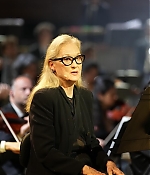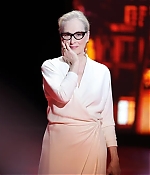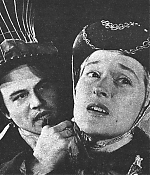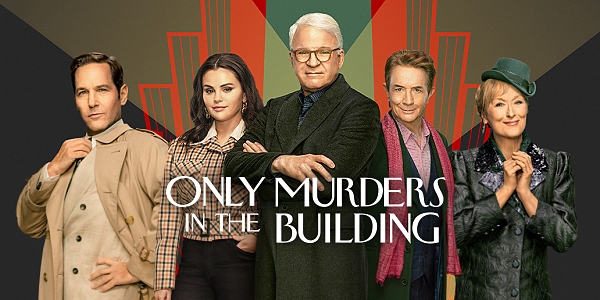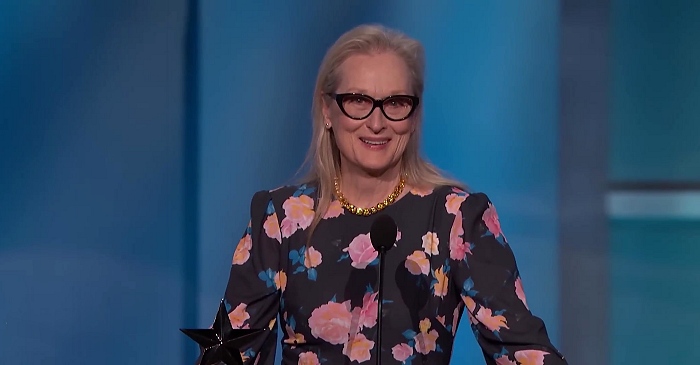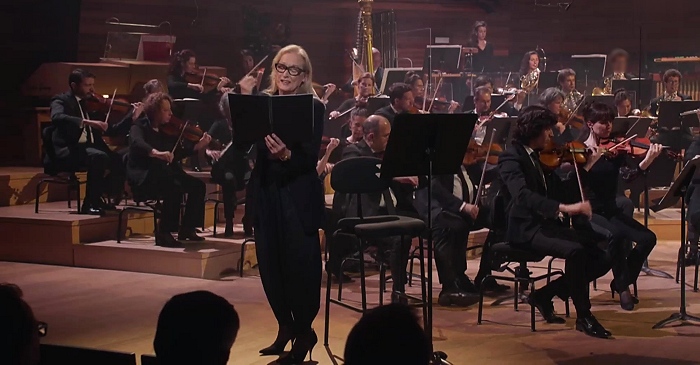
Simply Streep is your premiere source on Meryl Streep's work on film, television and in the theatre - a career that has won her three Academy Awards and
the praise to be one of the world's greatest working actresses. Created in 1999, we have built an extensive collection to discover Miss Streep's work through an
archive of press articles, photos and video clips. Enjoy your stay.
| Explore the Meryl Streep archives
Discover Meryl's work by year, medium or start a search
| |||||
Edward II
November 13-17, 1973
| Yale School of Drama
|
Directed by: James R. Shaffer
| Literature: Christopher Marlowe, Bertolt Brecht
The troublesome raigne and lamentable death of Edward the second. The blank verse play dramatises Edward’s turbulent reign from 1307 to 1327. Marlowe portrays the king’s downfall as a result of his love for his favourites, Gaveston and Spencer; his neglect of his queen and earls; and the rise of Queen Isabella and her lover Mortimer. The play explores the tragic tensions between sexual passion and marriage, royal responsibility and self-fulfilment, noble privilege and raw ambition.
Cast: Hugh Naylor (Barker), Stephen Rose (Edward II), John Rothman (Gaveston), Meryl Streep (Queen Anne), Walton Jones, Peter Mark Schifter (Old Soldiers), Lizbeth Mackay (Archbishop of Winchester), Linda Atkinson (Lancaster), Ralph Redpath (Kent), B. Edward Marshall (Abbot), Rob Rooy (Spencer), Alan Rosenberg (Baldock), Walt Jones, Peter Mark Schifter (Peers), Ken Reichley (Ballad Singer), Franchelle Stewart Dorn (Mortimer), Robert Nersesian (James, Later Rice Ap Howell), Chris Durang (Young Edward), Jeff Korman (Monk), Mark Rosenthal (Berkeley), John Phillips (Gurney Brothers), Trip Casscells, Beth Greenburg, Jeff Kroman, John Peters, Ken Reichley, Mark Rosenthal (Soldiers)
Reviews
Yale Daily News, November 15, 1973, Mark Farb
The opportunity to see Bertolt Brecht’s “Edward II” comes rarely – which is all the more incentive for one to see the superb and imaginative version at the Drama School. Adapting from Christopher Marlowe’s play, Brecht has transformed traditional tragedy into gripping existential drama. The characters live in a troubled world. King Edward’s homosexual fawning upon Gaveston causes the English lords to revolt. Mortimer leads the revolt, executes Gaveston, but loses and flees to Ireland. In the latter half, Mortimer returns, and eventually kills the now pathetic king. This outrage leads to her execution by Edward’s son. The numerous complications attending these events make the world seem like a circus. And so the play opens with calliope music, while Edward II looks like a ringaster. The lavish, grotesque costumes reinforce the feeling of confusion. This confusion is frightening – and we get the point without the projection screen in back showing tormented faces. Director James Shaffer adds a fascinating innovation: the English lords are women, disdainful and powerful. Their behavior is harpy-like; when the characters issue from a box at the start, one recalls the opening of Pandora’s box. This change weakens some of the conflicts of the first half, and creates dubious effects. In the second half, however, it works with the slam of a cathedral bell. The imcomprehensibility of these characters can horrify yet lead one on, just like the teading narrator who is always on the verge of giving more information.
The opportunity to see Bertolt Brecht’s “Edward II” comes rarely – which is all the more incentive for one to see the superb and imaginative version at the Drama School. Adapting from Christopher Marlowe’s play, Brecht has transformed traditional tragedy into gripping existential drama. The characters live in a troubled world. King Edward’s homosexual fawning upon Gaveston causes the English lords to revolt. Mortimer leads the revolt, executes Gaveston, but loses and flees to Ireland. In the latter half, Mortimer returns, and eventually kills the now pathetic king. This outrage leads to her execution by Edward’s son. The numerous complications attending these events make the world seem like a circus. And so the play opens with calliope music, while Edward II looks like a ringaster. The lavish, grotesque costumes reinforce the feeling of confusion. This confusion is frightening – and we get the point without the projection screen in back showing tormented faces. Director James Shaffer adds a fascinating innovation: the English lords are women, disdainful and powerful. Their behavior is harpy-like; when the characters issue from a box at the start, one recalls the opening of Pandora’s box. This change weakens some of the conflicts of the first half, and creates dubious effects. In the second half, however, it works with the slam of a cathedral bell. The imcomprehensibility of these characters can horrify yet lead one on, just like the teading narrator who is always on the verge of giving more information.
The play often leaves the audience wondering, as when Mortimer asks, “Does a man fall ith Fortune’s wheel or does he let go?” We are left to follow our sympathies, even with villains like Edward. A reading of “Edward II” would not be sufficient to evoke the forces at work upon the characters. With a cast which includes some surpremely controlled actors, in an interesting interpretation, this production at the University Theatre is a joy to see.
